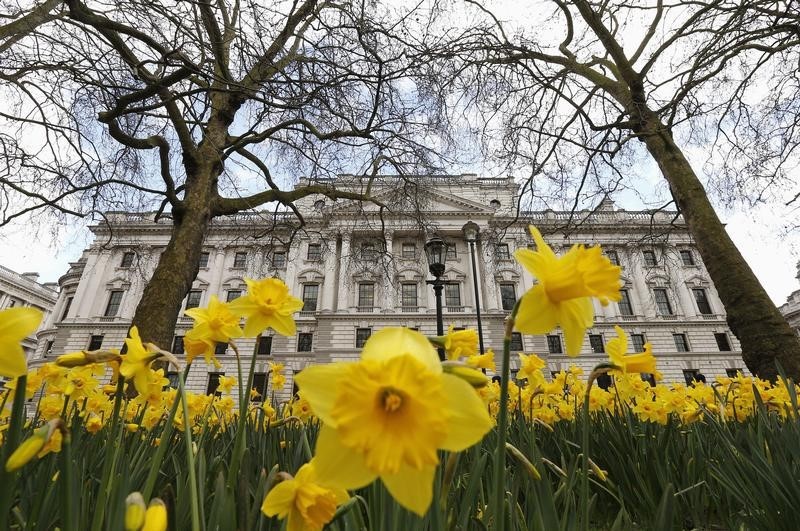By David Milliken
LONDON (Reuters) - Britain's major political parties are likely to face heavy pressure to raise taxes to balance the budget after May's election, contrary to their stated plans, a leading think tank said on Wednesday.
The Institute for Fiscal Studies, a non-partisan body whose analyses of Britain's public finances are closely watched, said the fiscal tightening planned over the coming years was deeper than in any of 32 other advanced economies it had looked at.
This would be a much greater challenge than the more modest progress made by Chancellor George Osborne since his Conservative Party and their Liberal Democrat allies came to power in 2010 with a mandate to cut the deficit, the IFS said.
"Mr Osborne has perhaps not been quite such an austere Chancellor as either his own rhetoric or that of his critics might suggest," IFS director Paul Johnson said.
"One result is that he or his successor will still have a lot of fiscal work to do over the course of the next parliament," he added.
Five years ago, Osborne intended to virtually eliminate by 2015 a budget deficit that then stood at 10 percent of economic output. Instead, it has been cut to 5 percent as growth fell short of the government's forecasts.
Osborne has said he has no plans to raise taxes after the election and the opposition Labour Party has said its tax rises will be focussed on the rich.
But the IFS said that "history suggests that general elections tend to be followed by tax rises".
Typically, the tax burden is raised by about 5 billion pounds just after an election, in today's terms, equivalent to increasing the standard rate of income tax by 1 percentage point, the IFS said.
"All the parties have suggested they would like 'the rich' to bear their 'fair share' of any additional fiscal adjustment. In fact ... just 3 percent of the adult population already pay half of all income tax," the IFS said.
Spending cuts on the scale currently planned by the government were likely to prove difficult, based on the past five years' experience, the IFS said.
Social security payments have risen in real terms in this parliament, as cuts to benefits for working-age people have been outweighed by more generous pensions.
And real-terms cuts to public services have also been less than planned, as lower-than expected inflation has made it easier for government departments to meet cash targets.
